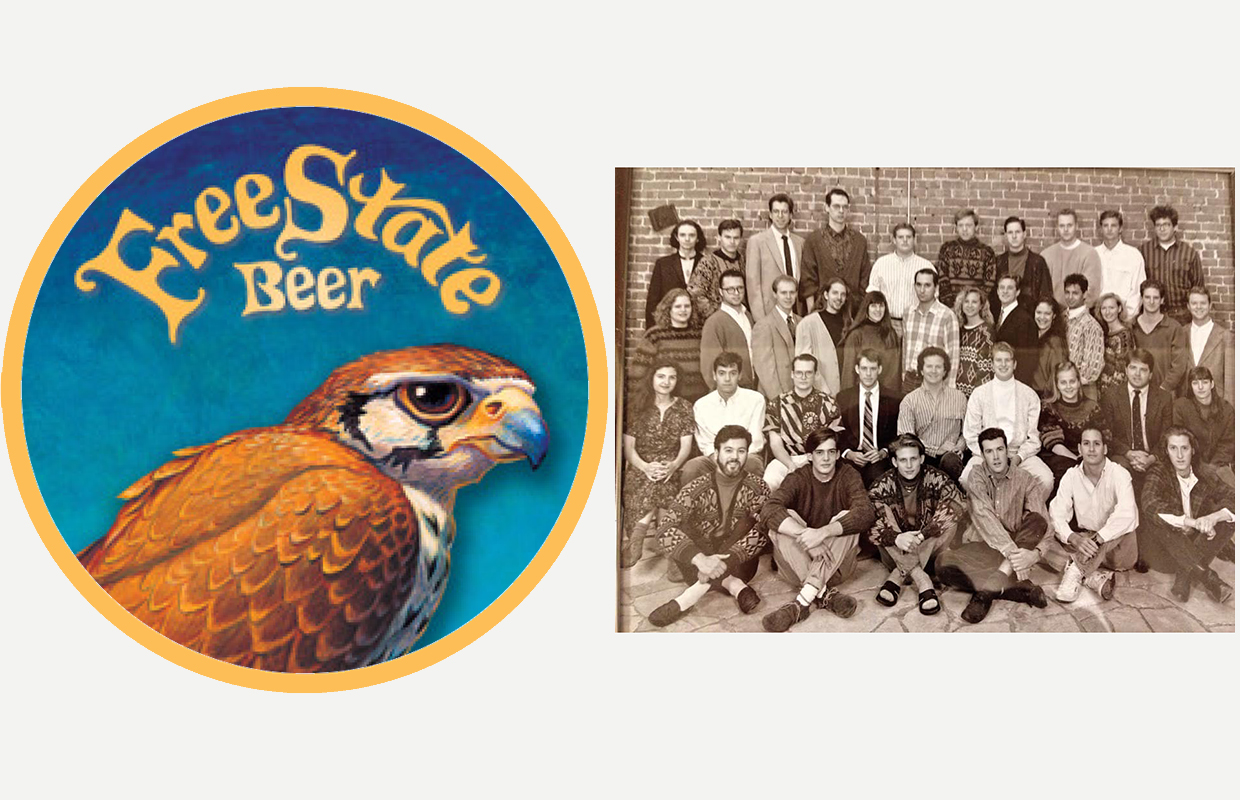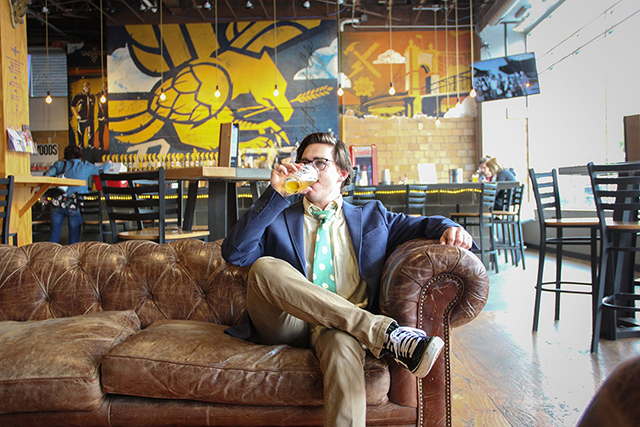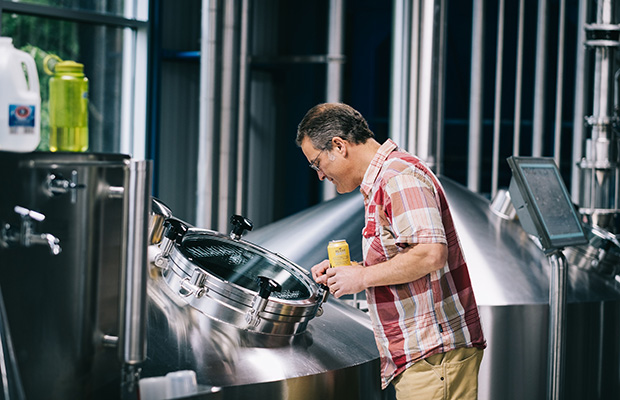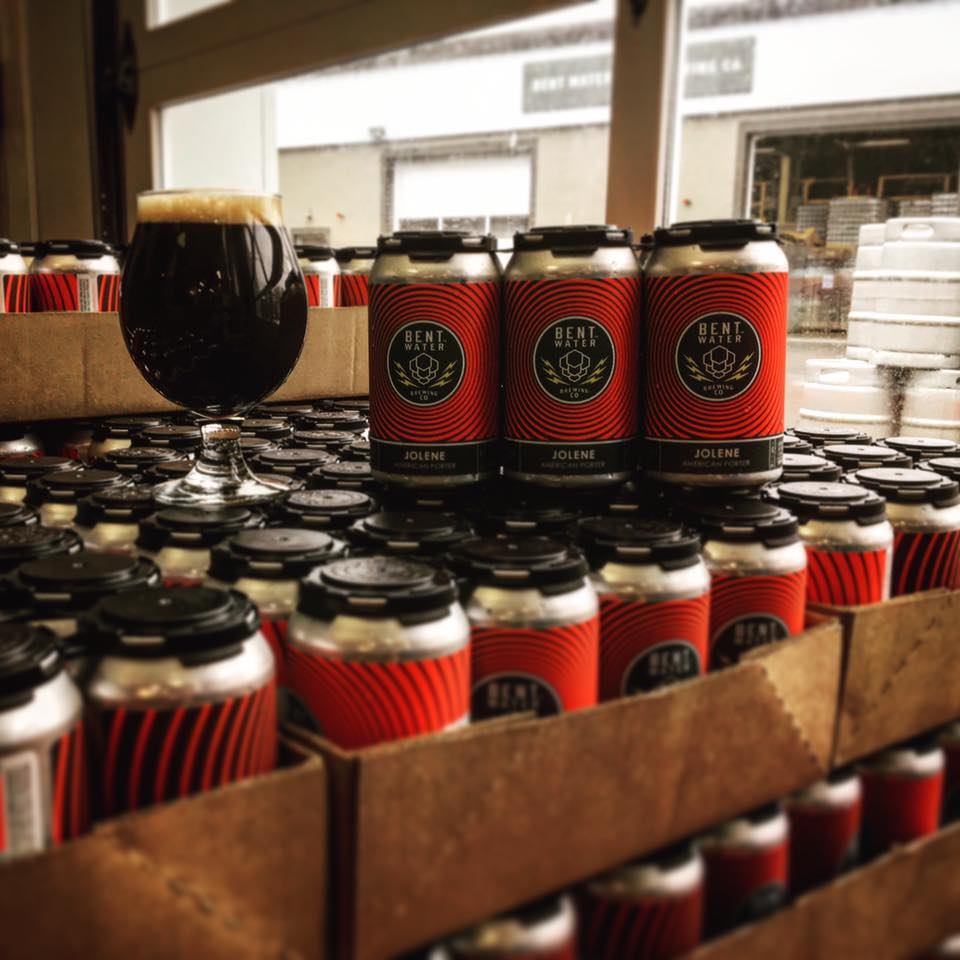
This is a continuing series highlighting the oldest craft brewery in each state with members of the organization that helped build the brand. Brewer Magazine will share business and personal insights each Monday to help learn how these veterans of the industry have grown.
Chuck Magerl, founder/proprietor, Free State Brewing — Lawrence, Kansas
Date the brewery opened: We opened in February of 1989. When it comes to craft breweries (or microbreweries as we were called then) 39 of us from that era are still brewing beers!
What beers were tapped on opening day? We were brewing with a Dusseldorf yeast strain by way of Portland, and working with Dan Carey, of New Glarus fame. We had a classic Alt, a Kolsch style Golden, and a rich Bock hybrid style beer for opening day. As eager customers rapidly drained the serving tanks, and our beers were depleted, we bought the only Anchor Steam kegs in the state, and for one day we were limited to kegs of Michelob. We placed an order for another fermenter within the first month, and we slowly built back to a balance on our production schedule.
BREWER: Why did the brewery open in the first place? What was your biggest “Year 1” struggle?
MAGERL: Although Kansas is likely more famed for Carry Nation and prohibition, we had a strong German emigrant surge in the 1870s and the state had a boom in breweries. But social crusaders pushed through the first Constitutional Prohibition in the US in 1880 and it destroyed the brewing industry in Kansas. I was researching an article to be published in a local paper about the story of the brewery in Lawrence, and I was captivated by the tales. And with Kansas as a major grain producing region, a grain-based beverage simply seemed like something to explore. I had been amazed by Anchor Brewing during visits to San Francisco in the 1970s, and I managed to get a few six packs of New Albion beer once they started production. (It was a wonderful treat to have Jack McAuliffe autograph a couple of the bottles I’ve treasured.) From there it was just a matter of homebrewing, uncovering old technical books in the library (The Practical Brewer), attending some training with Dr. Michael Lewis at UC Davis, and then getting the state law changed in prohibition Kansas to push things along. It was fortuitous to work alongside Dan Carey, and his classic training from the German tradition set us off on the right foot.
BREWER: Go ahead, pat yourself on the back; what was one of the key “good ideas” that were had early on which help drive growth or sustainability to the brewery?
MAGERL: With so much adaptation and innovation required in the early years of the industry, it seemed there was never a dull moment, and certainly no real sense of sustainability. The constant change became a bit of a running joke in the brewhouse. With my co-brewer Steve Bradt, we would often greet each other with the challenge, “well, what are we going to do to change the world today?” My academic background was pre-med biology and civil engineering/water resource management. But we often commented the best heritage for a brewer would be a dairy farm kid who drove British motorcycles. That combination of hard work, wet environs, sanitation and tinkering seemed built into the brewer job. I know my old Triumph motorcycle always required tinkering!
BREWER: OK, now admit a defeat; what was a decision or a circumstance that hurt the brewery? How did you solve that issue or find your way through it?
MAGERL: We’re in an older downtown building in an area with plenty of history. (The radical John Brown rallied the Lawrence militia in the 1850s from a hastily constructed defensive bunker just in front of our building.) Although we thought our planning and equipment selection gave us a good balance, we rapidly needed more capacity. The only option was up. We built steel platforms over every possible area of the brewhouse to allow for additional tank locations. Stairs and ladders are part of our daily routes.
BREWER: What excites you in your brand (be it liquid, equipment, strategies or something else) this year and how did you decide to pursue this avenue?
MAGERL: Our roots are deep in our community, and being a participant and sponsor in events, festivals, races, and social gatherings are very important to us. Those human interactions are the inspiration that keeps things vibrant. When it comes to roots, we’re also proud of our involvement with the legacy of sustainable agriculture that The Land Institute in Salina, Kansas is famed for. We were the first to brew a beer with their perennial crop that’s come to be known as Kernza, and we’re looking forward to additional versions of our Kernza beers highlighting some other native flavors.
BREWER: Being a veteran company in the craft beer industry, what “words of wisdom” do you like to share when a new brewery owner approaches?
MAGERL: It’s curious, beer production in the US has declined by over 20% since we started brewing beer. That’s certainly not what I had anticipated. But the craft of brewing, and the conviviality of social gatherings still holds a strong appeal, offering a sense of “right livelihood.” Like any endeavor, there needs to be a sense of resilience and a recognition that “problems emerge.” How you maintain your standards of excellence in the face of daily challenges will reveal your care, authenticity, and integrity.






Be the first to comment